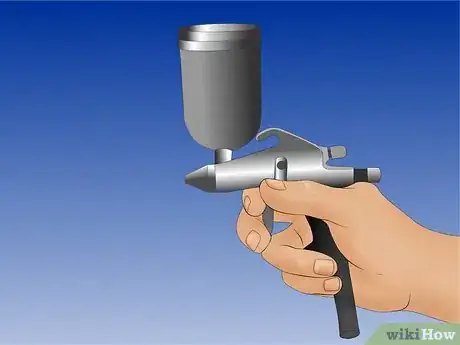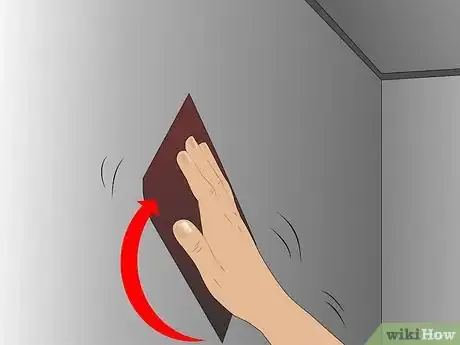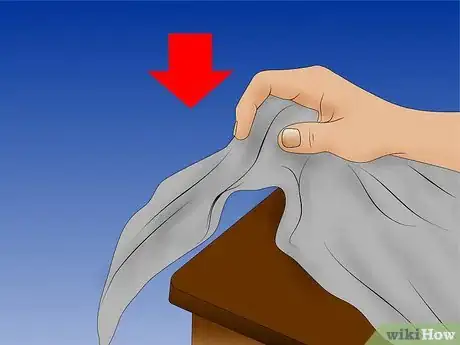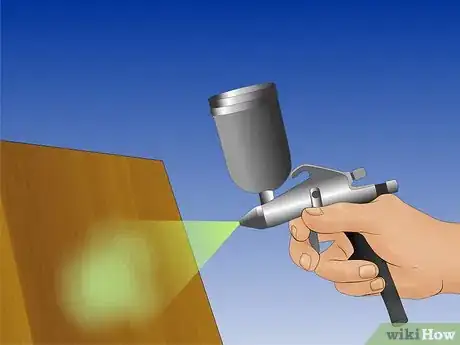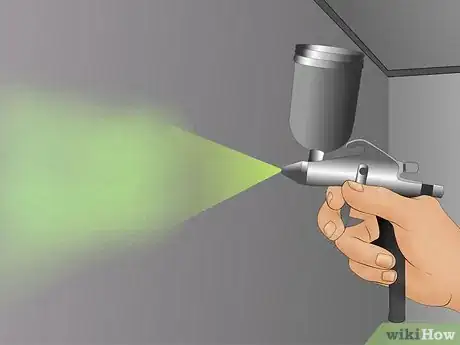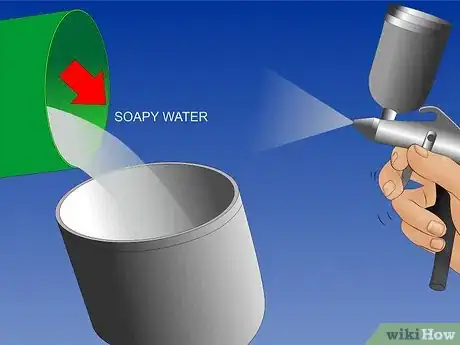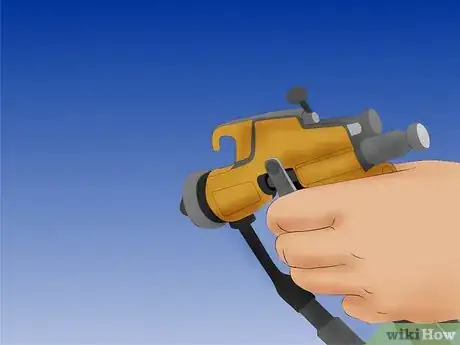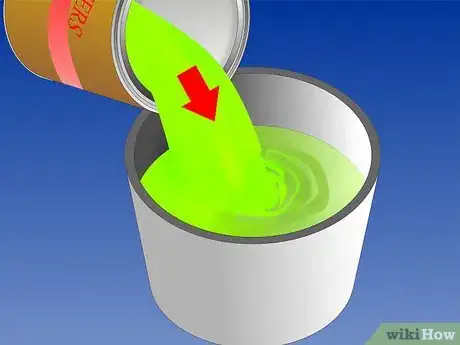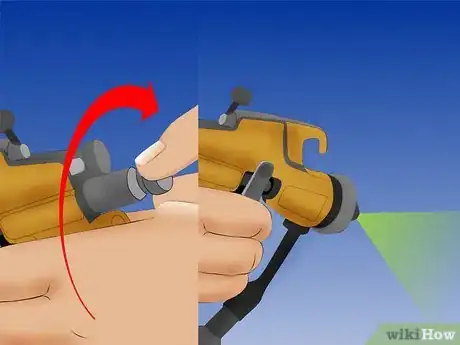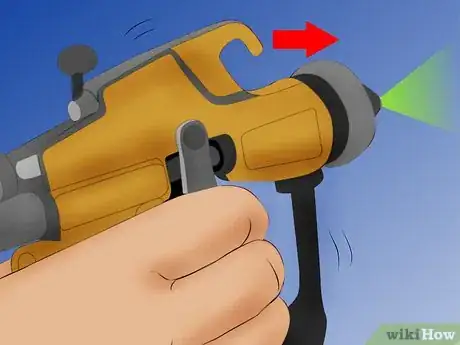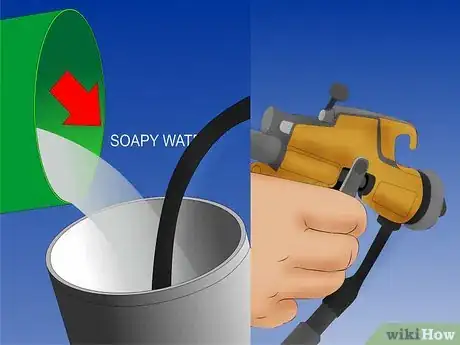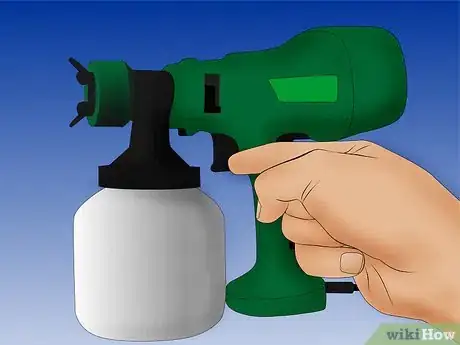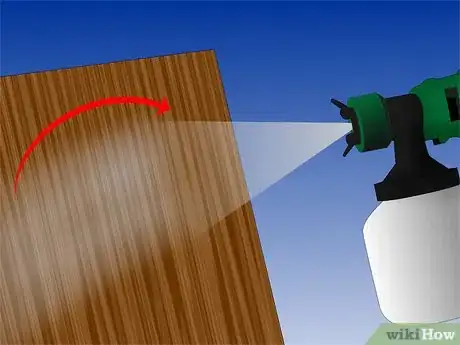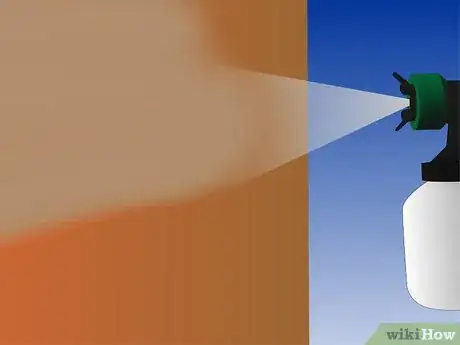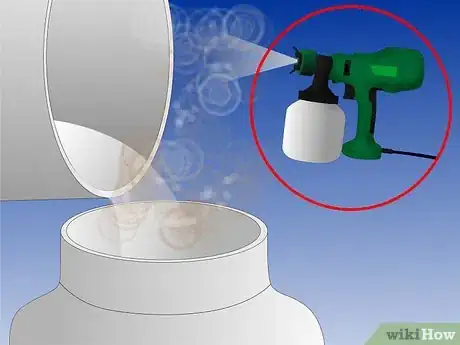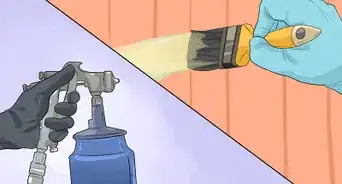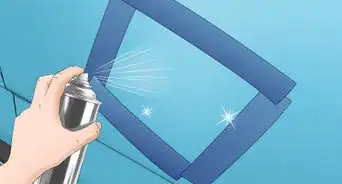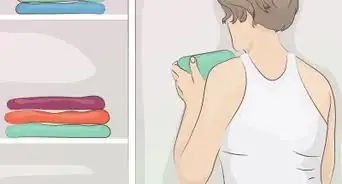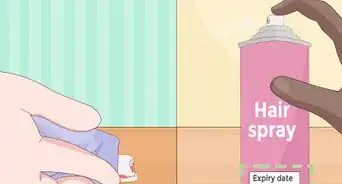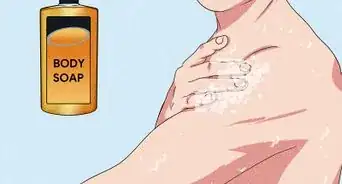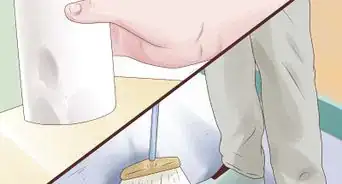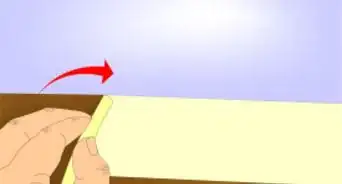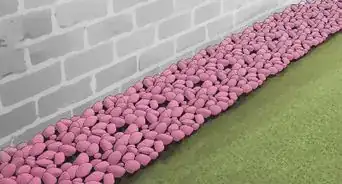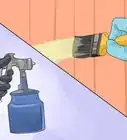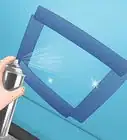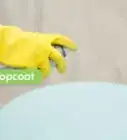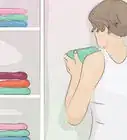wikiHow is a “wiki,” similar to Wikipedia, which means that many of our articles are co-written by multiple authors. To create this article, 11 people, some anonymous, worked to edit and improve it over time.
This article has been viewed 93,933 times.
Learn more...
Latex paint is a water-based paint. The water has been mixed with various acrylics, polymers that are used as binders. Latex paints are valued for their washability, resistance, and adhesion. Latex paints dry very quickly, apply in one coat, and clean up with soap and water. Latex paints are easily applied to most surfaces with paintbrush and/or roller. However, spray painting may be a better choice when speed, surface area, and texture are an issue. Because it reaches crevices and corners, applies a uniform and even coat, and applies a wetter coat that assures better adhesion, spray painting can be the best choice. Small containers of latex paint are readily available in aerosol spray cans, and these work well for small items and surface areas. To tackle the bigger jobs, you need to know the costs and challenges in how to spray paint latex.
Steps
Use a hand-held spray-paint gun.
-
1Use a spray-paint gun sprayer (sometimes called a "cup gun") for small jobs, such as furniture.
- The spray-gun is a virtually self-contained sprayer, electrical with a screw- on container for the paint.
-
2Prepare the surface to be sprayed by roughing the surface lightly with sandpaper and cleaning it thoroughly after.Advertisement
-
3Cover all furniture, carpeting, and adjacent items because spray will drift.
-
4Test run the spray on a piece of wood to determine the most suitable tip for the sprayer and the most effective stoke motion.
-
5Spray paint surface with lightly sweeping motions.
-
6Clean spray-gun by spraying a container full of lightly soaped water.
Use an airless spray gun.
-
1Use an airless spray gun for larger surfaces, such as indoor and outdoor walls.
-
2Prime the gun, hose, and siphon tube according to sprayer instructions.
-
3Fill a bucket with approximately 2 gallons (7.57 L) of paint.
-
4Adjust the pressure, after dry-run test spray on piece of cardboard or wood, according manufacturer's directions.
- Pressure is too high if the coverage is thin or there is a lot of scatter.
-
5Hold sprayer tip 14 inches (35.56 cm) from the surface and sweep sprayer in easy movements that overlap each sweep by 50%.
-
6Flush spray system with lightly soaped water.
Use an HVLP (High Volume Low Pressure) paint sprayer.
-
1Use an HVLP sprayer for surfaces where it is important to avoid streaks.
- The HVLP, like the Airless Spray Gun, consists of a paint reservoir, a hose, compressor, and gun with a variety of tips..
- The high volume (HV) in the sprayer applies more paint, and it does so at low pressure (LP), thereby, reducing overspray.
-
2Test sprayer on piece of wood or cardboard to practice sweeping motion and determine most effective tip.
-
3Paint surface with sweeping motions that overlap last sweep by 50%.
-
4Clean sprayer by flushing with lightly soaped water.
What Is The Best Technique To Spray Paint?
Community Q&A
-
QuestionHow much water should I add to thin the paint?
 Community AnswerYou would want to start with a small bit, because you can always add more water if the paint needs to be thinner. However, if you add too much at first you won't be able to get it thicker again.
Community AnswerYou would want to start with a small bit, because you can always add more water if the paint needs to be thinner. However, if you add too much at first you won't be able to get it thicker again.
Warnings
- Seek medical attention immediately if you accidentally inject paint into your skin.⧼thumbs_response⧽
- Latex is water-based, so it is not recommended for painting ferrous metals, over wall-paper, or un-primed wood.⧼thumbs_response⧽
- Wear safety equipment, including work gloves, goggles, and respirator.⧼thumbs_response⧽
Things You'll Need
- Safety goggles, work gloves, and respirator
- Paper towels
- Plastic sheeting and/or drop cloths
- Paint-spray gun
- Airless spray gun
- HVLP spray gun
- Lightly soaped water = 1 ounce (0.12 metric sup) of liquid dish soap per gallon of water
